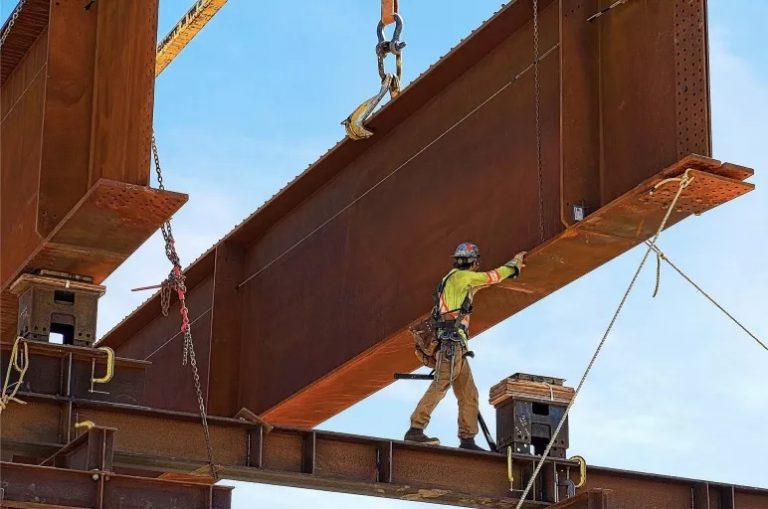We are a leading provider of heavy equipment sales and rentals, and we’re here to help you find the perfect fit for your needs.
We recognize that selecting the perfect piece of heavy equipment can be difficult, especially if you’re not sure which piece you should purchase first. We have a wide range of equipment from the industry’s leading manufacturers, and our skilled sales team is always available to assist you in finding the best fit for your requirements.
When considering a purchase, it’s also a good idea to understand what different pieces of equipment do. This article will give you a brief overview, plus explain why buying might be better than renting.
Common Heavy Equipment
Crawler Carriers
Crawler carriers are a fantastic choice if you’re looking for a heavy-duty piece of equipment that can transport large loads, like an articulated truck. Crawler carriers are instances of incredibly adaptable machinery, just as articulated trucks! These gadgets are made to withstand even the worst weather and terrain. Large loads or commodities are moved from one location to another using a crawler carrier.
Excavators
Excavators are a common type of vehicle used for transporting soil. They have a bucket, an arm, a turning cab, and mobile tracks. This heavy machinery can perform a variety of tasks, such as digging trenches and breaking holes, moving debris, and excavating mines, thanks to the improved mobility and digging power provided by these parts. Contractors and corporations employ excavators for a variety of jobs, including mining, constructing roads and buildings, and demolishing aging structures.
Cranes
You might also think about including a crane at your construction site. Cranes are employed in construction for a variety of activities and come in a wide range of sizes and shapes. In construction, cranes are used to raise or lower objects as well as move them across the ground. All cranes feature pulleys and cables, which are useful for transferring objects from one place to another.
The majority of the time, they are movable constructions that are placed on special vehicles or affixed to the ground. They can be controlled remotely or by a skilled operator riding along in a cab with the crane. The crane operator’s responsibility is to ensure the safety of the construction site, the operational crane, and the rigging crew, just like it is with everything else in construction.
The qualities and capacities of the various crane types dictate how they are employed. Among these features are mobility, weight, and size, lifting capacity, lifting range, lift angle, operating radius, setup time, and the ability to function at night. These factors will determine the kind of crane used in the construction sector. You’re likely to locate the ideal one for your needs as there are more than ten types.
Wheeled Dozer
The four corners of a bulldozer with wheels, where the tires are located, bear the weight of the machine. A wheeled bulldozer is more adaptable, maneuverable, and capable of sharper turns than similar heavy machinery because it often operates on a smaller axis. Moving between sites and through the work, the area is therefore made simpler. Wheel dozers come in a variety of sizes and are useful for clearing and leveling the ground, mining, and maintaining roadways.
Four-wheeled machines called wheel dozers, which compact dirt, perform best on firm, level surfaces like asphalt. However, the outriggers on these machines will keep the equipment steady if you are on a surface with more jolts. Additionally, because the inflatable wheels are less likely to harm the earth, they are useful if you are working in a park or yard with soft ground. Because they move quicker than track dozers and can cover more land in a shorter amount of time, wheel dozers of all sizes are simpler to transport by road, provide you more freedom, and increase your productivity. Wheel dozers will make it easier and faster for you and your crew to go where you need to go if you and your crew frequently need to transfer your gear between tasks.
Articulated Trucks
There are various types of articulated trucks available, each designed for a specific application. A few factors set articulated vehicles apart from conventional trucks. They can transport far more freight thanks to their extra-long trailers, for starters. They can also maneuver in confined spaces due to their articulating joint, which enables the front and back of the vehicle to move independently. They also have a low-pressure tire system that helps prevent them from becoming bogged down in the mud.
These powerful machines serve a variety of functions, including transporting heavy loads and delivering building supplies. Strong and capable of hauling heavy loads, articulated trucks. The truck’s connected center allows it to rotate quickly, which makes it ideal for maneuvering in confined spaces. It is possible to use articulated trucks for a variety of jobs, such as transporting building supplies and large pieces of machinery. Due to their unique design, articulated trucks are perfect for a variety of terrain, including off-road and rocky roadways. Aside from that, articulated vehicles are tough and capable of the most demanding tasks.
A robust and adaptable choice for moving heavy cargo or transporting construction supplies is an articulated truck. Due to their distinctive appearance and exceptional carrying capacities, articulated trucks are an essential tool for any firm.
Reasons to Purchase
There are several advantages to purchasing heavy equipment rather than renting it. If you have a project that requires a lot of usage of the same piece of heavy gear, renting it can quickly become prohibitively expensive, and you may end up paying a lot of fees due to the wear and tear you have caused over time. When you buy equipment, you may keep it for as long as you need it without having to return it or pay extra expenses. You may also sell the equipment when you no longer use it, which can help cover the original cost of purchasing.
Another advantage of purchasing heavy equipment is that you may personalize it to match your exact requirements. If you require a piece of equipment that is not available for rental, you may be able to purchase it. You may also have the equipment maintained and repaired as needed, which is often less expensive than renting.
Summary
Overall, investing in heavy equipment may be a good decision that will save you money in the long term. Before making a purchase, it is essential to conduct research and compare pricing, but the benefits of ownership may be well worth the initial outlay. You can find more information at https://worldwidemachinery.com/ if you’re interested in either purchasing or buying. Our team of professionals can help answer any questions you might have.

















+ There are no comments
Add yours